As businesses evolve, so too must our commitment to protecting your privacy. That's why we're excited to share our updated privacy policy, designed to enhance your trust and transparency in how we handle your personal information. We've made it easier than ever to understand your rights and the measures we take to safeguard your data. Curious to learn more about these important changes? Read on for all the details!

Introduction and Purpose
Business privacy policies are essential legal documents that outline how companies collect, use, and protect personal information from customers and employees. Updating these documents ensures compliance with changing laws and enhances transparency. Various regulations, such as the General Data Protection Regulation (GDPR) in Europe and the California Consumer Privacy Act (CCPA) in the United States, impose requirements on businesses to communicate their practices clearly. Effective privacy policies build trust with stakeholders while mitigating risks of data breaches and legal penalties. Regular updates also reflect the evolving nature of technology and consumer expectations regarding digital privacy.
Summary of Key Changes
The updated business privacy policy includes several key changes designed to enhance transparency and protect customer data. The introduction of specific definitions regarding "personal information" now aligns with regulations such as the General Data Protection Regulation (GDPR) effective since May 2018, and the California Consumer Privacy Act (CCPA) enacted in January 2020. The policy now outlines the types of personal data collected, including names, email addresses, and payment information, as well as the purposes for data collection, such as improving customer service and processing transactions. Enhanced user rights are now specified, allowing users in jurisdictions like the European Union to request data access, correction, and deletion. Additionally, the policy details data retention periods, which specify that personal information will be securely stored for no longer than three years. Clearer guidelines on third-party data sharing provide users insights into partnerships with service providers, such as payment processors and marketing companies, ensuring data confidentiality.
Detailed Explanation of Revisions
In the recent update of our business privacy policy, we have incorporated several critical revisions aimed at enhancing transparency and user trust. Notably, the introduction of clearer definitions for personal data, following the guidelines of the General Data Protection Regulation (GDPR) established by the European Union, allows users to understand what constitutes their personal information. Additionally, we have expanded the section on data sharing, specifying the types of third parties such as analytics providers and marketing partners. Our commitment to user rights is emphasized through newly outlined procedures for accessing and deleting personal information, in line with California Consumer Privacy Act (CCPA) requirements. Furthermore, we have included details concerning data retention periods which clarify how long we retain user data. These modifications reflect our dedication to safeguarding user privacy and compliance with evolving legal standards.
Action Required by Recipients
Privacy policies serve as essential frameworks for protecting personal information in business operations. A recent update emphasizes the necessity of informed consent for data collection practices across various platforms. Companies like Google (known for its extensive data collection) and Facebook (with evolving privacy features) have redefined their user agreements to align with international regulations like the General Data Protection Regulation (GDPR) established in 2018. Adjustments include clearer language about data usage, retention periods, and user rights, such as the ability to opt out of data sales or request data access. This refined focus on transparency empowers consumers, promoting trust and accountability. Organizations are now required to communicate these changes effectively, ensuring that all recipients acknowledge the updated terms to maintain compliance.
Contact Information for Questions
Businesses must provide clear contact information for inquiries regarding privacy policy changes, such as a dedicated email address (info@businessname.com) or a customer service phone number (1-800-555-0199). This information should include the name of the privacy officer or compliance manager, along with their office hours and response times, ensuring customers feel reassured about their data privacy concerns. Additionally, businesses should specify the physical address (1234 Business Ave, Suite 100, City, State, Zip Code) where formal inquiries can be sent, along with any fax numbers if applicable, enhancing transparency and trust in the company's commitment to data protection.

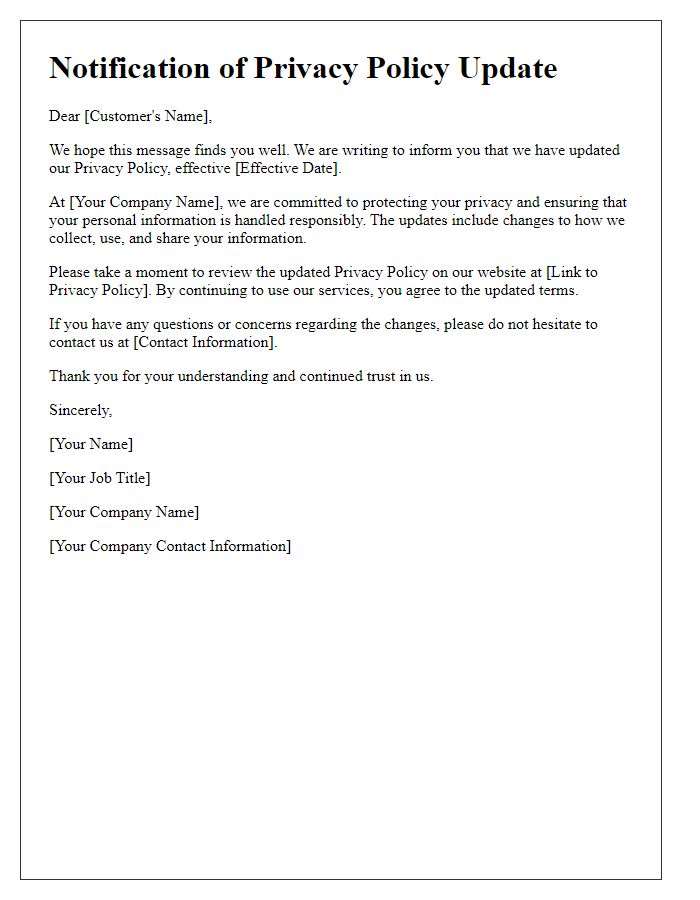
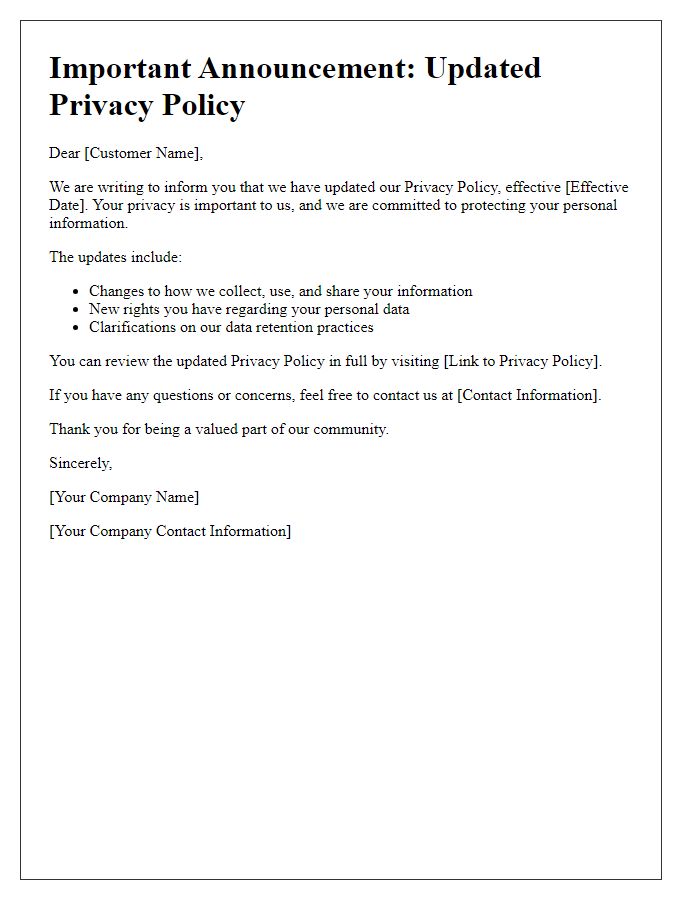
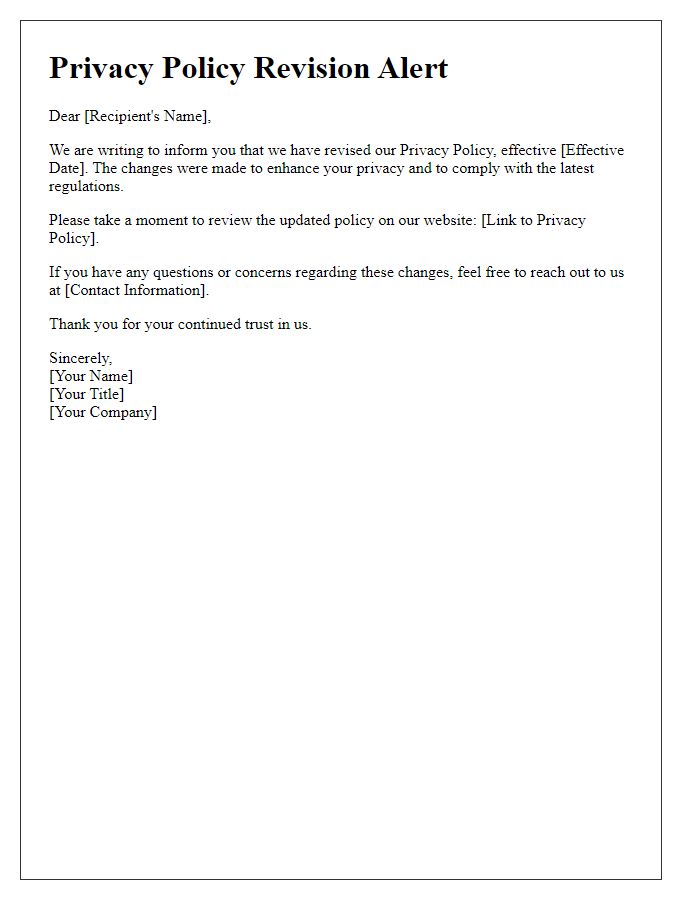
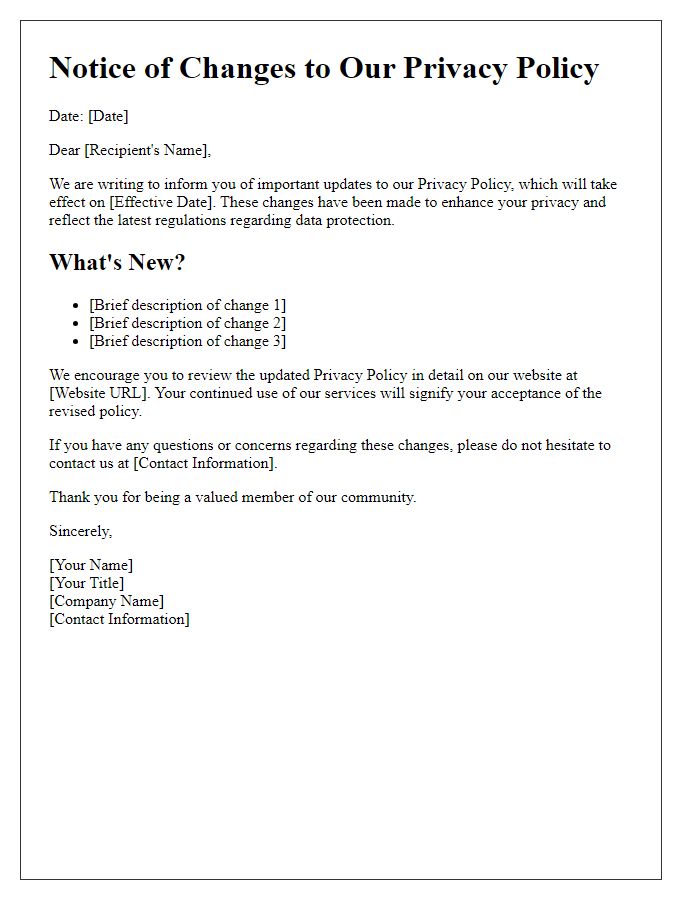
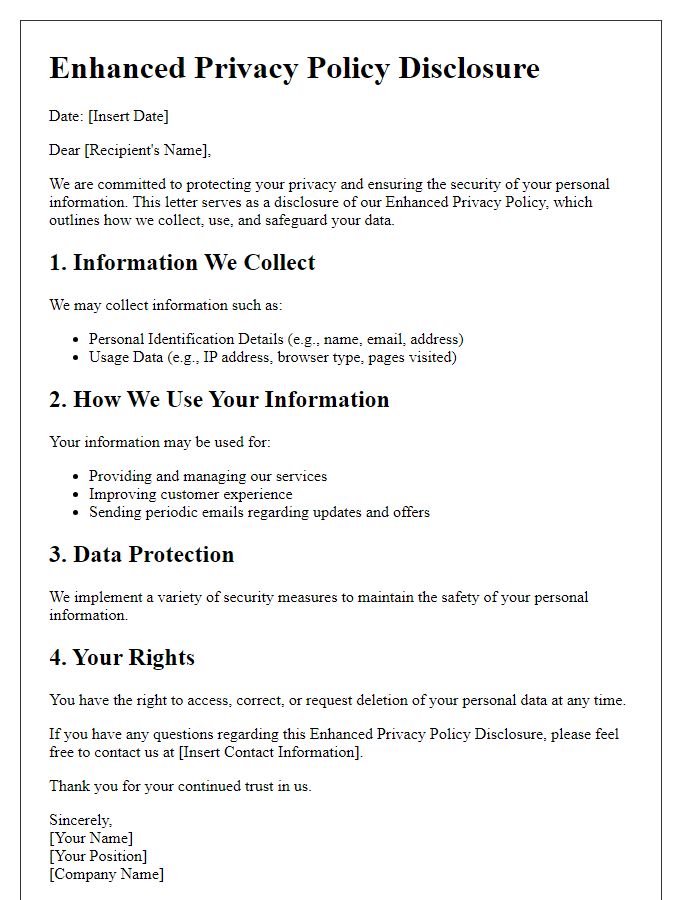
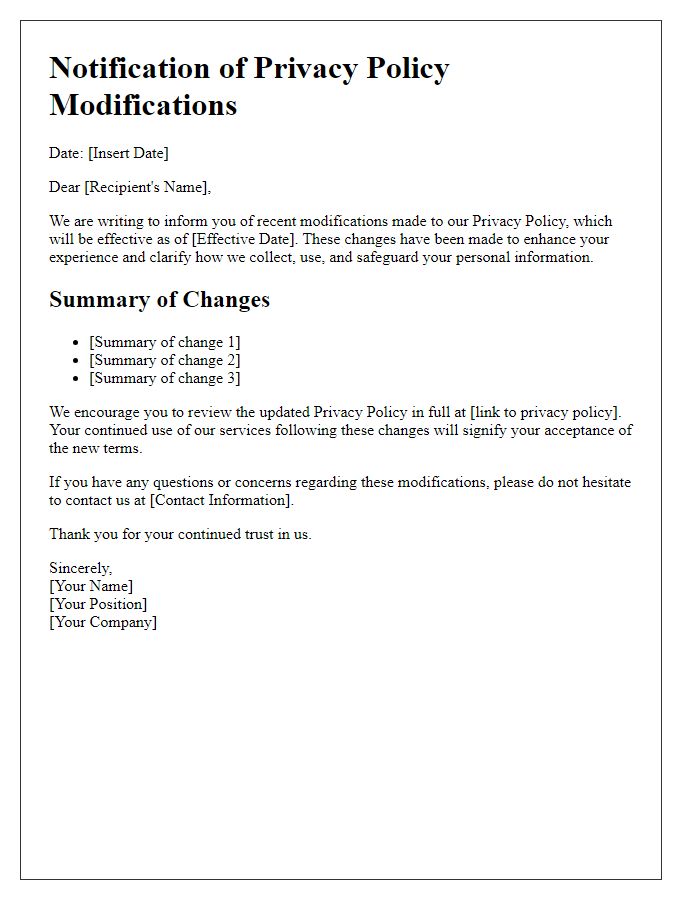
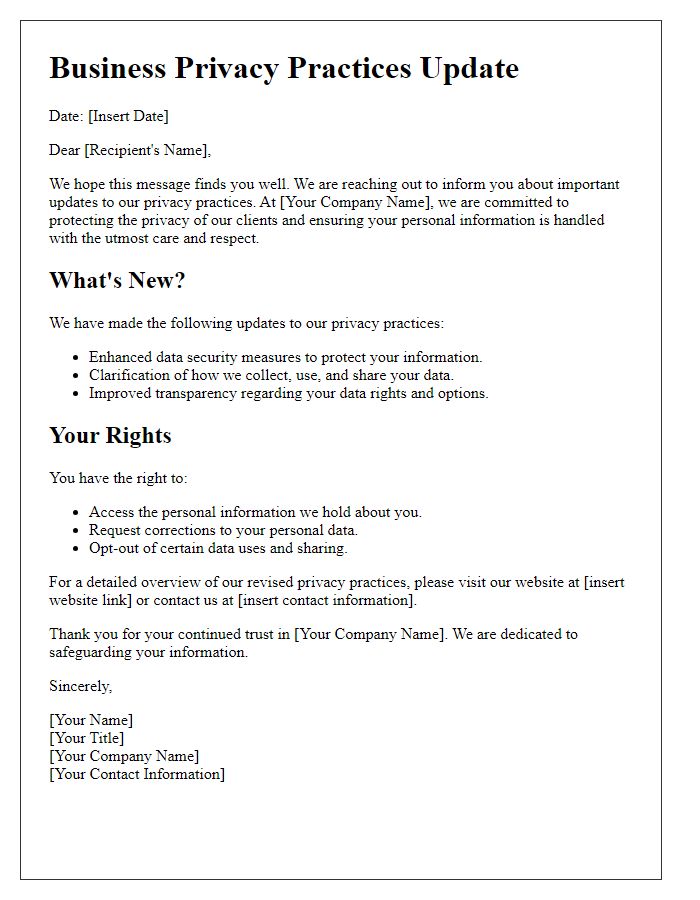
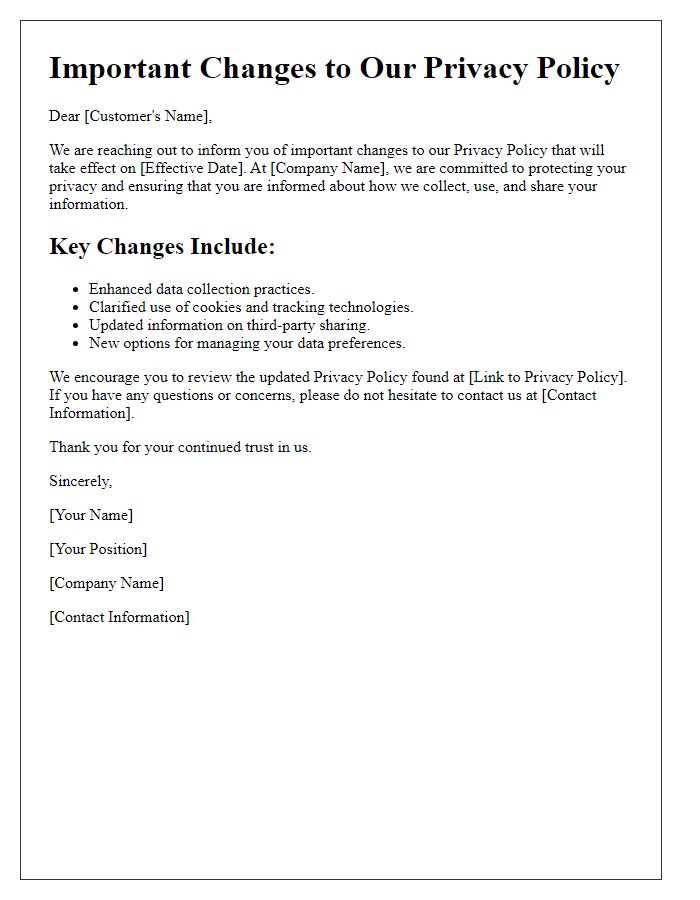
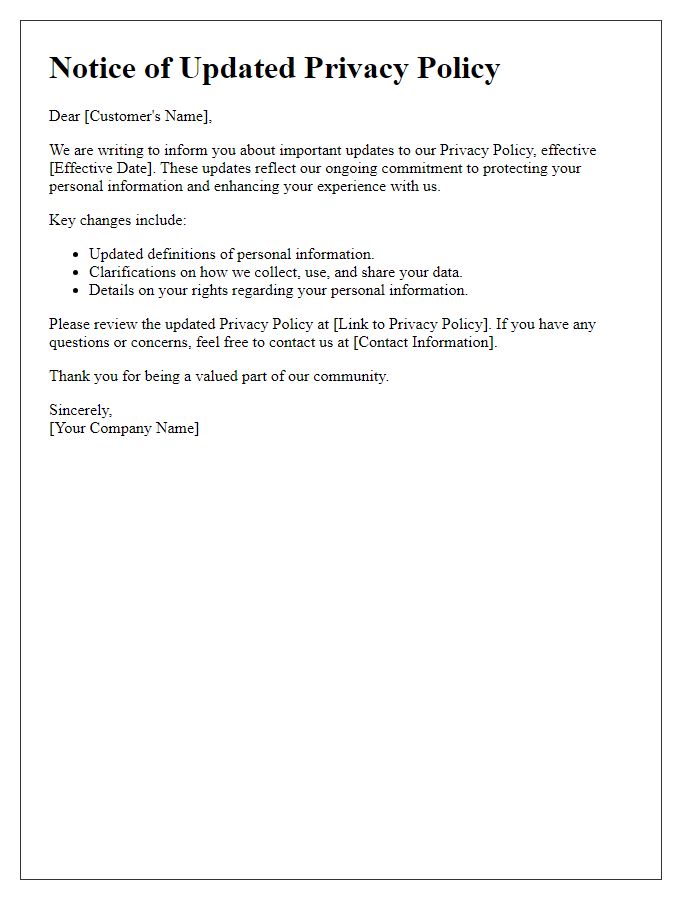
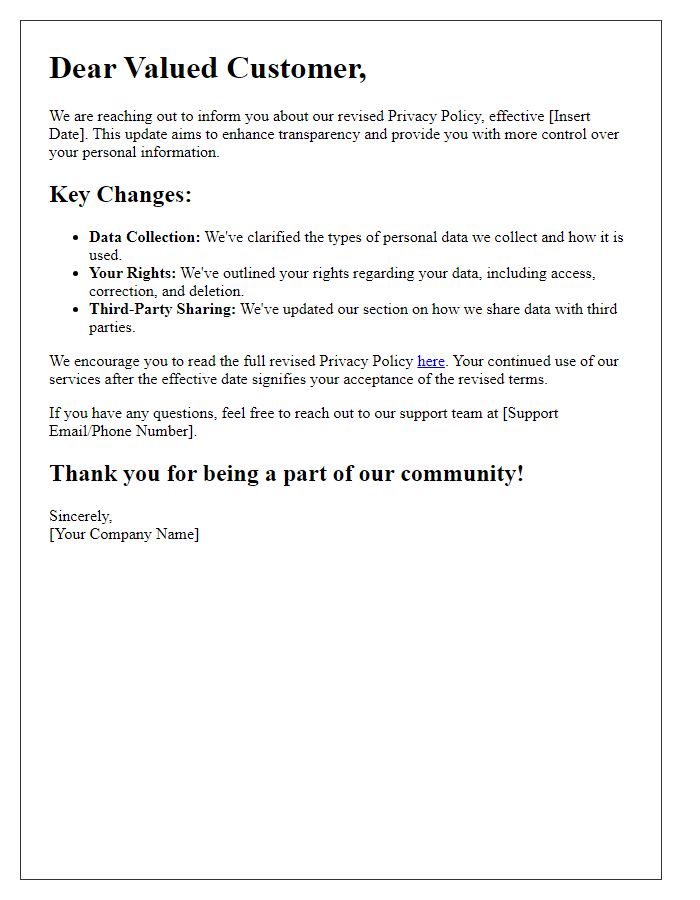


Comments